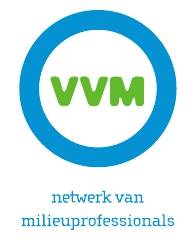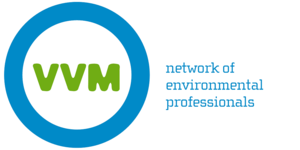The awarding of the Nobel prize for peace to the IPCC and Al Gore in 2007 acknowledges the importance of scientific progress in climate change research and recognizes our increasing concern about the possible consequences of climate change on the global environment and the human society.
The political debate on measures to reduce the emission of greenhouse gases is making progress. It focuses mainly on the reduction of CO2, which is a major, but not the only contributor to climate change. The major Non-CO2 Greenhouse Gases (Methane (CH4), Nitrous oxide (N2O) and Halocarbons) contribute, compared to CO2, 60 % of the radiative forcing. This presents attractive opportunities in emission reduction alternatives.
The Air Quality and Climate Change Section of the Netherlands Association of Environmental Professionals (VVM) organized its Fifth International Symposium on science, implementation and policy aspects of non-CO2 Greenhouse Gases (NCGG5) from June 30 to July 3, 2009, in Wageningen in The Netherlands. NCGG-5 addressed not only the role of non-CO2 greenhouse gases and aerosol in human-induced climate change, but also cost-effective options for reduction and its implementation in industry and society.
The symposium aimed to remove barriers beween policy and science and fosters the dialogue between scientists, engineers and officials in industry and government, which are all, though from a different perspective, involved in non-CO2 greenhouse gas issues.
Is the recent increase of methane concentrations ending a temporary period of steady state?
In 2007 and 2008 the atmospheric methane concentration has been increasing again after a 6 year period of apparent steady state. At present it is still unclear whether the current increase is another temporary anomaly, like the one observed in 2004, or the start of a new period of methane increase. The focus of this session is on contemporary sources and sinks of methane, their tendencies in recent years, and plausible developments in the near future. Interesting areas include, for example, the response of natural sources to climate change and changes of anthropogenic emissions in response to regional changes in economical development, energy use, and agriculture. We welcome contributions from process modeling, analyses of atmospheric measurements and the construction of anthropogenic emission inventories.
The Conference was co-chaired by Paul Crutzen, Scripps Institution for Oceanography and Bert Metz, Co-chairman of IPCC Working Group III.
The symposium will focus on the non-CO2 greenhouse gases; for that reason papers on general aspects of climate change or referring to CO2 alone, will not be accepted.
A new issue in this conference series is the role of aerosols in climate change. The magnitude of radiative forcing of aerosols is equal, though of different sign, to all NCGGs together. A further study to its formation, abundance, future trends and interrelationship with NCGG emissions is therefore desired and relevant in this symposium.
Apart from the plenary Opening and Closing sessions, the symposium will be conducted in parallel sessions, focussing on the main themes: (i) Sources, sinks and inventories, (ii) Monitoring and modelling of atmospheric composition and (iii) Mitigation options and policy implementation.
Data on sources and sinks are basic for understanding atmospheric composition and change in climate forcing, for emission inventories at different scales, and as input for models at varying scales. Topics for contributions could include:\
There is a great need at various scales for reliable data for all greenhouse gases and other trace components which directly or indirectly affect the radiation balance, in order to improve the quality of emission inventories. Reports to be considered include the following topics:
NCGG-emissions have already been partly reduced through implementation of non-climate, climate and specific NCGG directed policies. However, there is still room for considerable improvement in industry and especially in agriculture. Implementation of cost-effective policies and measures as well as new technologies both in the public and private sectors will contribute to further accelerating and increasing NCGG-reduction. Reports and position papers could include the following topics on policy and implementation issues, including assessments of implementation programmes for NCGG-reduction and innovative approaches in policy implementations:

Dutch Association of Environmental Professionals
TNO
Water Systems and Global Change Group, Wageningen University & Research
WIMEK Graduate School
NCGG9 is organized by:
p/a UCo
2e Daalsedijk 6a
NL-3551 EJ UTRECHT
The Netherlands
T +31 (0)30 - 232 29 89
E eciffo@ncgg.info

Stichting MilCon (Foundation for Environmental Congresses, a separate legal entity that is linked to VVM) is responsible for the logistic and financial management of NCGG9. The contents of the symposium is the responsibility of VVM and its co-organisers. Logistic services for NCGG9 will be provided by the VVM-bureau.